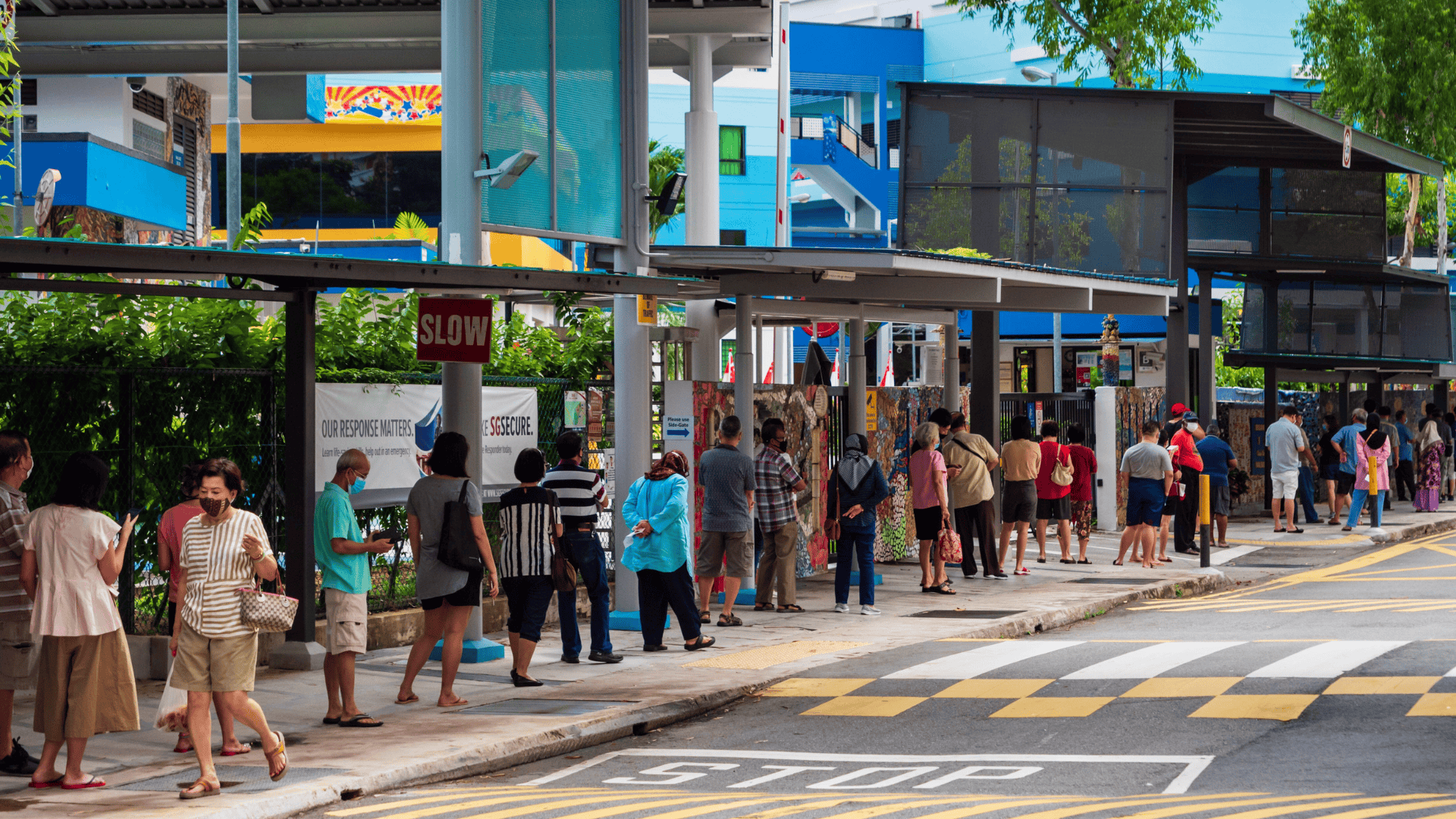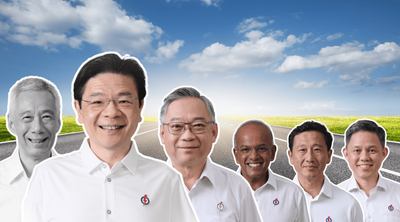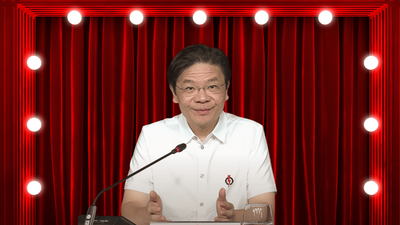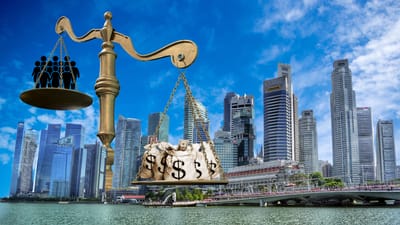Singapore’s next general election (GE) is due by November 2025. Given the recent leadership handover by former Prime Minister (PM) Lee Hsien Loong to new PM Lawrence Wong, there is considerable speculation that the government may call it sometime this year. Regardless of the timing, one of the most important choices facing Singaporeans at our next election is this—given the particular challenges and opportunities ahead of us, are we going to be better served as a society by a system that is overwhelmingly dominated by a single political party, the ruling People’s Action Party (PAP), or a more balanced one with a stronger opposition? How Singaporeans decide this question at the polls will shape the character and direction of our country.
If one considers the slew of changes to government policy following the result of the 2011 election, which saw a significant vote swing against the PAP, it’s clear that the granular electoral outcome of the next GE will influence government policy.
Given this, the serious-minded, middle-ground Singaporean voter (including those who may have traditionally voted PAP) must necessarily ask the question I posed earlier—going forward, are we going to be better served as a society by a system that is overwhelmingly dominated by the PAP or a more balanced one with a stronger opposition?
History shows that a good, effective opposition enhances a society with checks and balances. No man or system can, or should, be trusted with near complete dominance. But beyond the need for effective checks and balances, is there a strong case for an enhanced opposition at the upcoming GE? It is my firm conviction that as economically successful as we have been as a country, we can be an even better and stronger society with a stronger political opposition.
I offer three reasons for this.
First, a stronger opposition is necessary because diverse Singaporean perspectives are more essential than ever for better policy-making on the increasingly complex issues facing our country.
As the current Senior Minister (SM) Lee Hsien Loong himself noted in his 2004 speech to the Harvard Club of Singapore, just months before taking over from Mr Goh Chok Tong as PM: “I have no doubt that our society must open up further. The growing participation and diversity over the last two decades have been vital pluses for Singapore…”
SM Lee gave two reasons for this (both of which today support the presence of a stronger opposition): one, our world has become more uncertain and, thus, “[t]o understand and tackle our challenges fully and vigorously, we need to draw on the expertise and resources of all our people”; two, Singaporeans are now better educated and informed, and wish to be more involved.
SM Lee continued: “We value diversity. As we engage one another and wrestle with our problems, we will encounter different views, but far better for us to manage these honest differences than become an apathetic society with no views.
People should debate issues with reason, passion and conviction, and not be passive bystanders in their own fate. Disagreement does not necessarily mean rebellion, and nor should unity of purpose and vision mean sameness in views and ideas.”
That 2004 speech is worth a read in its entirety.
While there has been some progress, various developments point discomfitingly towards an increasingly unfavourable stance towards politically divergent views, and media and academic freedom in Singapore: among others, the overly broad fake news legislation, the Prevention of Online Falsehoods and Manipulation Act (POFMA), and the manner in which it has been interpreted and applied; the context and circumstances leading to the closure of the Yale-NUS College, Singapore’s pre-eminent liberal arts institute of higher learning; the dispiriting absence of critical analysis in our mainstream media; and the academic freedom survey by AcademiaSG, which disclosed that around three-quarters of academic respondents reported some degree of self-censorship and at least “moderate” interference by non-academic actors in decision-making at their respective institutions.
These do not seem to be isolated developments. Rather, they present a concerted posture against dissenting viewpoints. Decades after independence, non-mainstream voices still appear to be treated with suspicion and scepticism rather than as important stakeholders for positive change in our society. Far from being a weakness, we need to welcome political diversity and celebrate difference as a source of national strength. To thrive in today’s world, political balance and openness is not only desirable but necessary.
The key issues now facing Singapore society are complex and do not lend themselves to straight-forward solutions. They include enabling short- and long-term financial security for our citizens; revamping our education system as part of our transition to a high-wage, high-skill economy; ensuring continued social mobility; addressing Housing and Development Board (HDB) affordability and lease decay; reviewing our media policies; nurturing an intellectually vibrant and socially conscious citizenry; and optimising the use of our reserves to balance the needs of current and future generations.
All these issues require nuanced and thoughtful approaches. We should be tapping into a much wider array of views in our society. That is especially so in our national politics and Parliament, where our laws and policies are scrutinised and debated.
Diversity of views, including from the political opposition, is not just some lofty ideal; it is a pragmatic necessity for our society. We know from experience that even having one dissenting voice in the room will help any team think harder about the issues. A healthy society depends on real debate, different opinions, and new ideas. None of this is controversial. Nor should it be.
Second, there is a strong economic case for a more competitive and vibrant social and political ecosystem in Singapore. One of the biggest challenges free market economies like Singapore face today is where new growth will come from. What should the future base and structure of a vibrant, post-Covid-19 pandemic Singapore economy look like to secure the long-term prosperity of our citizens?
Given our very high land costs, to justify high Singaporean wages, we need to build a substantial core of our economy around innovation, creativity and a culture of robust entrepreneurship. To achieve this, the core skills needed for our citizens to thrive in the future will have to be underpinned by qualities of open-mindedness, critical thinking and creativity.
In its report “Defining the skills citizens will need in the future world of work”, McKinsey & Company, a global consulting firm, identifies (among others) the following as core foundational skills: critical thinking; communication (public speaking, asking the right questions, synthesising messages); self-leadership and entrepreneurship (courage and risk-taking; driving change and innovation; breaking orthodoxies; grit and persistence; coping with uncertainty); and interpersonal skills (crafting inspiring visions, fostering inclusiveness, inspiring trust, collaboration, and resolving conflicts).
We must honestly ask ourselves whether certain aspects of our current Singapore ecosystem (that is, our political, media and academic landscape) are, in fact, ill-suited to developing these fundamental qualities. An article last year in The Straits Times (ST) rightly asked, “On the global stage, where are all the Singaporean CEOs?” It noted the qualities Singaporeans are known for: hard work; technical competence; reliability; efficiency and a single-minded focus on results. However, international executives highlight certain limiting qualities that are generally observed among Singaporean staff: risk aversion; reticence in speaking up; lack of innovative thinking; difficulty in navigating ambiguity and difference. The ST article observed that our system “does not naturally encourage agility, creativity or breadth”.
These observed “Singaporean qualities” do not stack up well against the list of qualities identified in the McKinsey report. How did we end up with these limiting qualities, and how might we overcome them to establish a new culture and skillset going forward? One would have hoped the ST piece would probe the aspects of our political history, media and academic systems which might have contributed to our risk-averse, close-lipped, top-down national culture. It didn’t.
Consider this—for decades, we have had a very strongly government-controlled mainstream media where critical commentary of our system is few and far between; a narrowly focused education system; and a political system which, far from embracing the opposition as an important stakeholder, treats its critics harshly. Is it any wonder then that Singaporean cultural traits have developed the way they have?
Academic freedom, press and political openness—they are all unavoidably linked with a culture of innovation, creativity, and economic dynamism. One cannot stifle political diversity and media and academic freedom and then hope for a culture of open-mindedness, risk-taking, innovation and entrepreneurship to flourish.
It’s important to note that foreign investors and businesses appear quite comfortable with Singapore’s growing political plurality. Consider GE2020, which saw one of the highest opposition vote shares ever, and delivered more opposition politicians to Parliament than at any point since the 1960s. Foreign investors responded with a record level of foreign direct investment in 2022. Many corporations, from Amazon to Alibaba, have grown their local presence over the past four years. Businesses value not just stability in a country, but resilience—which political diversity helps boost.
If we hope to thrive in the new world we are headed into, difference, including political difference, must not merely be tolerated but celebrated. It is a necessary spark for any society seeking to achieve its best.
Microsoft CEO Satya Nadella’s observation, “Our ability to change our culture is the leading indicator of our future success”, is worth serious reflection. We ignore it at our peril.
Third, a stronger opposition is needed as a national defensive measure to mitigate the risks of prolonged and dominant one-party rule. The leadership dangers inherent in prolonged one-party rule are illuminated by Thomas Friedman, respected columnist at The New York Times, in his 2012 piece, “Filtered or Unfiltered?”
Reviewing the work of Harvard Business School professor Gautam Mukunda, who analysed hundreds of political, business, and military leaders through history, Friedman observed: “…[leaders] fall into two categories: filtered and unfiltered. Filtered leaders rise through the ranks and get thoroughly evaluated before they attain power. They tend to be capable but uninspired. ‘Most organisations exist in a stable equilibrium,’ notes Mukunda. They don’t want to change. The easy, even the natural path for them is to just slowly carry on, often decaying gradually over time. So they tend to pick leaders who won’t make any big mistakes—but that means picking ones who won’t make any bold decisions.”
In contrast, “unfiltered” leaders rise swiftly, often from outside the established system. The distinction is not about the superiority of one over the other, but the risks associated with a system predominantly favouring filtered leaders—leaders who, while technically capable, tend to be risk-averse and reticent to challenge prevailing norms.
Within this framework, the current PAP-dominated system selects filtered leaders. While filtered leaders can be very successful, their effectiveness hinges on their flexibility and strength to step outside long-held beliefs. This becomes especially important as Singapore transitions into a phase demanding fresh perspectives and revisiting aspects of the current status quo.
Despite the personal likability of PM Lawrence Wong and other 4G leaders, are they sufficiently bold to challenge established norms? Given the culture and system within which they were long raised, nurtured, and promoted, are they more likely to lean in favour of preserving the status quo or do they possess the audacity to challenge long-held beliefs, especially in the presence of other senior cabinet members? What actions or past history of PM Wong or other 4G leaders inspire confidence in their willingness or audacity to break from entrenched policies and positions?
The challenges of prolonged one-party rule demand a counterbalance to risk aversion and to foster a political landscape where bold decisions are encouraged. A stronger political opposition, therefore, emerges as a necessary element in Singapore’s journey towards a more dynamic and robust society.
Anyone sensitive to the moods and trends in our nation must know that the time is well overdue for greater political openness and a much stronger opposition presence in our national affairs.
There is no question that Singapore has, on many scores, done exceedingly well since independence. But failure to adapt our political system to changed circumstances will end up becoming a major risk liability, especially for future generations.
There is an inherent tension within Singaporean society between the growing desire for a stronger political opposition on the one hand, and the deeply-embedded need within the Singapore psyche for stability and continuity on the other. At this time in our history, voting for a stronger opposition may be our greatest ally. There cannot be growth if we do not remain open to what may seem to be new, different, or uncertain.
It is our collective responsibility to seek the best of what Singaporean society is capable of, and to nurture and strengthen it. We must take this opportunity to imagine, and fashion, a better, more politically open and inclusive Singapore, while retaining the best of what we have inherited from our forefathers.
The future is ours to make.
Harpreet Singh Nehal is a Senior Counsel. He recently joined the Workers’ Party. The views expressed here are his own.
Read this week's newsletter to understand Jom's approach to publishing commentaries from politicians. Letters in response to this piece can be sent to sudhir@jom.media. All will be considered for publication on our “Letters to the editor” page.
If you enjoy Jom’s work, do get a paid subscription today to support independent journalism in Singapore.







